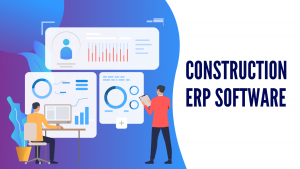Blockchain – In recent times, the cryptocurrency industry has risen to colossal dimensions. The market will reach an all-time high in April 2021.
Blockchains may come to mind when you think about digital currencies such as Bitcoin. While these two ideas are connected, Its for business has far-reaching implications that go beyond cryptocurrencies.
Today’s article is about blockchain in ERP implementation .
How would it function, and how would it affect the manufacturing industry in particular? Let’s take a closer look at what we know so far as the answers continue to emerge.
What is Blockchain?
It is a technology that is immutable and decentralized. This ledger includes a chain-like record of replicated and dispersed transactions. This chain’s “blocks” each contains a fixed number of transactions. Every participant’s log is updated whenever a new transaction occurs.
6 Benefits of Implementing Blockchain in ERP
As more organizations adopt blockchain functionality, it’s critical to grasp the technology’s essential characteristics. What makes it so transformational, and what are the most crucial elements?
1. Distributed Ledger Technology
The distributed ledger element of blockchains technology appeals to forward-thinking corporate executives. This shared ledger records every transaction that takes place on a company network.
From shipment manifests to dispute settlements, the ledger serves as a trackable record for everything linked to a company’s supply chain.
2. Customizable User Permissions
Since blockchain works on openness, corporations may create user-specific permissions as per the permission blockchains.
When a blockchain is permissioned, it indicates that its members are not all in the same group. Instead, each person has their own distinct identity enabled via a digital certificate.
Businesses may set policies that govern who can and cannot join in the network and to what degree. Because digital certificates are both forgery-resistant and verifiable, they may also limit access to transaction details.
3. Smart Contracts
Companies focus on making physical and electronic papers that clearly describe the legal or business conditions for centuries.
Smart contracts are made to code and placed directly on the blockchain, becoming identical to the transaction.
Contracts may be formed and handled without the help of a central authority with this level of automation. It has the potential to improve supply chains in a variety of sectors.
4. Less Third-Party Reliance
Traditionally, third parties are familiar with validating commercial transactions. Other times, corporate leaders may request that central authorities perform this duty. While the work is required, it is not necessarily quick, straightforward, or cost-effective.
With the introduction of blockchain technology, all members must be recognized and trusted before joining a network. When an intermediary is not necessary for a transaction, the firm may proceed more quickly.
5. Partner Reliability
Manufacturers and distributors rely heavily on their trading partners. Before adding a partner to your network, it’s critical to confirm their identity and integrity. This degree of validation is incorporated into a blockchain, eliminating the need for third-party authorization.
6. Real-Time Communication
Transactions in traditional business models are continuous and one-way. In contrast, all participants in blockchain and ERP Software may log in and access the same relevant information. It provides producers with a new level of insight and collaboration, allowing them to better prepare for inventory shortages and surges in demand.
The Future Role of Blockchain in Business
It’s is a fascinating and promising technology. As more businesses migrate to public or private networks, the future of manufacturing is in jeopardy.
While adopting blockchain in Enterprise Resource Planning is a game-changer with several advantages, keep in mind that it will necessitate focusing on people and process components. To learn more about these components, please feel free to contact us.
We at Connected IT are a leading firm that deals with the problems arising out of ERP.
ERP Project Management
Business Process mapping
Small Business ERP
ERP Consulting



